World War I was a global conflict between the Central Powers of Germany, Austria-Hungary, the Ottoman Empire and Bulgaria; and the Allies which was a coalition of many nations, most prominently the Great Britain, France, Russia, Japan and Italy. It began with the declaration of war by Austria-Hungary on Serbia on the 28th of July, 1914; and ended with the surrender of Germany on November 11, 1918. When WW1 began, Germany was led by Emperor Wilhelm II, Austria-Hungary was led by Franz Josef Habsburg I while Russia was led by Czar Nicholas Romanov II. However, by the end of the war, these monarchs were forced to abdicate. Other major political figures of WW1 include the French Prime Minister Georges Clemenceau; the British Prime Minister David Lloyd George; and the American President Woodrow Wilson. Here are the 10 most important political figures of World War I.
#1 Kaiser Wilhelm II
| Lifespan: | January 27, 1859 – June 4, 1941 |
| Nation: | Germany |
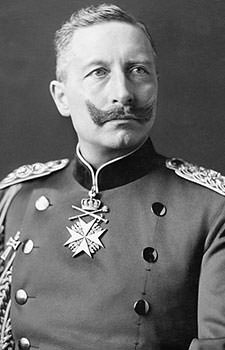
Wilhelm II was the German Emperor (Kaiser) and King of Prussia from 1888 till his abdication in 1918. Known for his fiery speeches and militaristic manner, Wilhelm dreamed of building Germany into a major naval, colonial and economic power. Wilhelm favored increasing the strength of the German military, and encouraged by Admiral Alfred von Tirpitz, he was keen to develop the German Navy to match the British.
On 28th June 1914, Archduke Franz Ferdinand, the presumptive heir of the Austro-Hungarian Empire, was assassinated by a Bosnian Serb named Gavrilo Princip. This was followed by a diplomatic storm in Europe known as the July Crisis. Kaiser Wilhelm promised Austria Hungary unconditional support (blank cheque), encouraging an attack on Serbia. In summer of 1914, he had a change of heart as he tried to scale back German involvement, only to be dissuaded by his generals. Wilhelm operated as Commander in Chief of the German armed forces throughout the war but it is widely accepted among historians that the power was wielded by the German military generals, especially in the later years of WW1.
#2 Herbert Kitchener
| Lifespan: | June 24, 1850 – June 5, 1916 |
| Nation: | Britain |
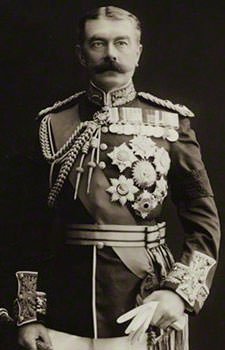
A popular and towering figure in Britain,Herbert Kitchener was a veteran imperial commander who had commanded the Egyptian and Indian Army. He served as Consul General to Egypt from 1911 to 1914, from where he was recalled and given a cabinet post as Secretary of State for War. In this capacity Kitchener convinced the cabinet that Britain would require a large army to outlast a war that will go on for years. Utilizing his fame and the famous “Your country wants you!” recruitment poster with his face, Kitchener organized the largest volunteer army in Britain, expanding from 20 to 70 divisions in two years with close to 2 million volunteers.
Kitchener oversaw British war strategy for the first year and a half of WW1. Difficult to work with, he rarely got along with his peers. Kitchener was criticized for his lack of organizational skills and his involvement in the failed Dardanelles Campaign of 1915. He offered to resign but the cabinet feared a backlash owing to his overwhelming popularity. In 1916, however, Kitchener drowned while traveling to Russia, when his ship was sunk.
#3 Nicholas Romanov II
| Lifespan: | May 18, 1868 – July 17, 1918 |
| Nation: | Russia |
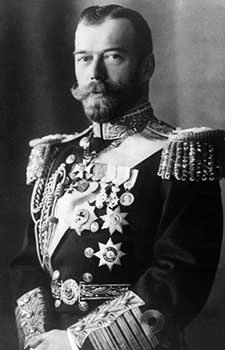
Nicholas II was the last Czar (1894-1917) of Russia and member of the Romanov family that had ruled Russia since 1613. Considered by many and, perhaps himself, as an absolute ruler ordained by God, Czar Nicholas II had territorial ambitions in Asia and the Balkans. After being checked by the Japanese in the Russo-Japanese War of 1904, Nicholas II turned his attention to the Balkans where he was a sympathizer and supporter of Slav nationalism. He however tempered his ambitions, wanting to maintain peace among the Major Powers of Europe. This was apparent in the July Crisis of 1914, where he wanted to avert the impending war through diplomatic channels.
Paranoid of any criticism, Nicholas II refused to allow the elected Duma to have a say in the war. As Russia faced multiple military defeats, he took personal command of the armed forces becoming the Commander in Chief in September 1915. Nicholas II did not, in fact, interfere unduly in operational decisions of the military, but his departure for headquarters had serious political consequences. His godlike reputation suffered with every Russian defeat. Moreover, the supreme power in result passed to the Empress. The economic and social pressures of war, political instability and dissatisfied public prepared ground for the Russian Revolution of 1917. On March 15, 1917 Nicholas II was forced to abdicate the throne. He and his family were then taken to the Ural Mountains and placed under house arrest and in July, 1918, Nicholas II and his family were murdered by the Bolsheviks.
#4 Franz Josef Habsburg I
| Lifespan: | August 18, 1830 – November 21, 1916 |
| Nation: | Austria-Hungary |

The last significant monarch of a weakening Habsburg empire, Emperor Franz Joseph I ascended the throne of Austria at the age of 18. His reign would last for 68 long years where he would try to keep his increasingly fractious and multi ethnic empire together. He was largely against war, knowing well that it could further destabilize his nation. Rise of ethnic nationalism troubled Joseph throughout his reign and the pan-Slavism in the Balkans became a threat to his empire. Austria annexed Bosnia-Herzegovina in 1908, adding fuel to Serbian nationalism which led to the assassination of Joseph’s grandnephew Franz Ferdinand. In 1914, international politics, the pressures of holding the empire intact and the weight of family tragedies finally made him push for war to punish Serbia. Franz Joseph was among the most respected and loved monarch of the time and with his death in 1916, the Austro-Hungarian Empire was further weakened.
#5 Bethmann Hollweg
| Lifespan: | November 29, 1856 – January 1, 1921 |
| Nation: | Germany |
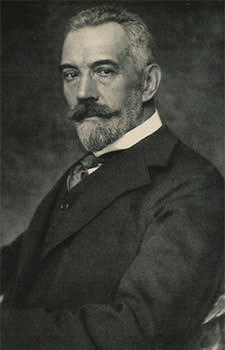
A seasoned diplomat and trusted aide of Kaiser Wilhelm II, Bethmann Hollweg was appointed the Chancellor of Germany in 1909, a position he held till 1917 and for most of WWI. In the period from 1909 to 1913, Hollweg made considerable effort to forge diplomatic relations with Britain, an effort that was out of sync with most other influential German politicians of the day. As the effort failed to bear fruit, Hollweg changed position and was in favor of a short effective war against any nation that threatened Germany’s position as a dominant European power. In the prewar July Crisis of 1914, it was Bethmann-Hollweg’s action in handing the ‘blank cheque’ to Austria-Hungary that tipped the balance in favor of war. However, as it became increasingly clear that war would take on a global scale, Hollweg made efforts to reverse the tide.
Hollweg delayed the navy’s call on unrestricted submarine warfare knowing the diplomatic repercussions from neutral countries, especially the United States. In January 1917, he however gave consent to the same given Germany’s increasingly dire military position. As war had progressed, his position along with that of the Kaiser Wilhelm II, waned with the Admirals and Generals dominating the political scene. In July 1917, Bethmann Hollweg was finally forced to resign, when top military leaders Luderndorff and Hindenburg threatened to resign if he did not leave office.
#6 David Lloyd George
| Lifespan: | January 17, 1863 – March 26, 1945 |
| Nation: | Britain |
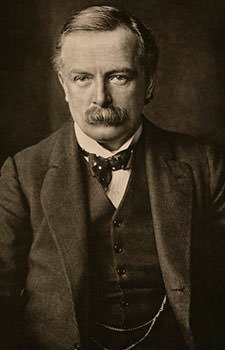
Member of the Liberal Party hailing from Wales, David Lloyd George had the reputation of an anti-war liberal reformer before the advent of the First World War. In the first two years of the war, Lloyd George served in the coalition government of Prime Minister Herbert Asquith, as Minister For Munitions and as Secretary For War. Notably as Minister of Munitions in 1915, he improved production by opening up the industrial space for competition and women workers.
In December 1916, Lloyd George joined hands with the Conservatives and ousted Asquith to become Prime Minister. He remained in the country’s top position till the end of the war, proving to be a bold, decisive and practical leader, unlike his predecessor. George played a key role in organizing the British war effort and creating a war cabinet of 5 key members. Moreover, he was willing to learn from the mistakes of the first 2 years. He often found himself at loggerheads with warring Generals especially BEF Commander in Chief Douglas Haig. In particular, Lloyd George found the cost in human terms of Haig’s battles to be reprehensible. In 1917, he forced the implementation of the convoy system in the British ships despite stiff resistance from the navy. This fruitful move in response to the German submarine campaign is often counted among his big achievements.
#7 Georges Clemenceau
| Lifespan: | September 28, 1841 – November 24, 1929 |
| Nation: | France |
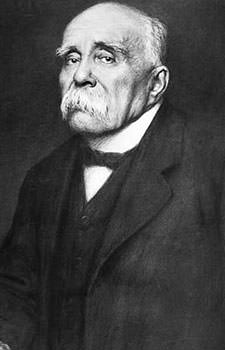
A leader of the Radical Party in France, Clemenceau was a statesman and journalist with a formidable reputation. Nicknamed Le Tigre (the tiger) in his country, he served as the Prime Minister of France from 1906 to 1909, and again from 1917 to 1920, towards the end of WWI. When war broke out in 1914, he refused to be part of the government as justice minister. Instead, he chose to outline and criticize the government and the army of the time, which he felt was not doing enough to win the war. His newspaper was among the first to be censored during the war, suspended for a brief period.
In November 1917, when the French effort seemed to be failing and victory seemed a long way off, Clemenceau was appointed Prime Minister. The situation was bleak with the Italians on the defensive, Russians out of the war and little progress on the front, where there was a wait for the Americans to arrive. A man of fierce energy and an iron will, Clemenceau worked to revive French morale in the country. He served as the Minister of War himself; and persuaded the Allies to agree to a unified military command under Ferdinand Foch. He thus drove France through later part of WW1 and the successful conclusion of the conflict in 1918. Post war, Clemenceau pushed for harsh measures against Germany in the peace negotiations, demanding disarmament. The French were given back the long lost Alsace Lorraine territory. However, Clemenceau remained unimpressed. Ironically, he lost the 1920 election on the charges that he was too lenient in his treatment of Germany at the Treaty.
#8 Vladimir Lenin
| Lifespan: | April 22, 1870 – January 21, 1924 |
| Nation: | Russia |
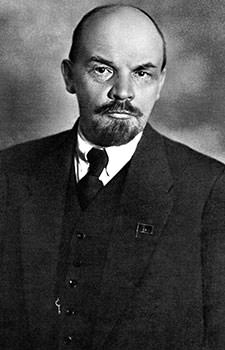
Founder of the Russian Communist Party (Bolsheviks), Vladimir Lenin was the inspiration and leadership behind the Bolshevik Revolution of 1917 in Russia. He was also the prime architect and first head of the modern Russian state (1917–24). Moreover, he is counted among the greatest revolutionary statesmen and thinkers in human history. Deeply influenced by the writings of German philosopher Karl Marx, Lenin was involved in revolutionary politics from an early age.
As Russia entered the First World War in support of Serbia and the Allies, Lenin advocated for a Russian defeat, arguing that it would hasten the political revolution he desired. This was of interest to the Germans, who soon arranged for Lenin and his group living in exile in Europe to return to Russia. As Lenin returned in April 1917, the revolution was already taking ground in Russia, with Czar Nicholas II abdicating and ending imperial rule. Lenin then began plotting the overthrow of the newly formed Provincial Government, whom he felt was just a “dictatorship of the bourgeoisie”. There was opportunity to fill the leadership vacuum in a country demoralized and torn by war. It came a few months later, and on November 7 and 8, 1917, the Bolsheviks seized power in Russia.
#9 Woodrow Wilson
| Lifespan: | December 28, 1856 – February 3, 1924 |
| Nation: | United States |
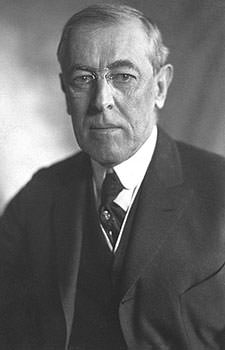
Among the most prominent US presidents, Woodrow Wilson was an advocate of democracy and world peace. Considered as an idealist and impractical by some scholars, he led the United States in the critical period of the First World War; serving as president for two terms from 1913 to 1921. As WW1 broke out, Wilson was determined to keep US out of the conflict. In May 1915, the British ocean liner Lusitania was sunk killing 128 Americans. This made Wilson issue a stern warning to Germany but he maintained America’s neutral status. As the war progressed and the Entente powers grew in debt to the US, Wilson became convinced he could offer mediation and establish peace; but his efforts failed.
“He kept us out of war” became the campaign slogan for his second term election in 1916. However, as the Germans started their unrestricted submarine warfare and sunk American ships, Wilson finally declared war on Germany in April 1917. In the peace negotiations at Versailles after the war, he proposed the creation of the League of Nations to ensue world peace. Ironically, the US Congress did not approve of America joining the League. Woodrow Wilson was awarded the Nobel Peace Prize in 1920 for his efforts.
#10 Winston Churchill
| Lifespan: | November 30, 1874 – January 24, 1965 |
| Nation: | Britain |

A shrewd politician, pragmatist and good orator, Winston Churchill is remembered more for hisleading role in the Second World War. However, he also contributed significantly to the British effort in WW1. In 1911, Churchill was appointed the First Lord of Admiralty in Britain where he played a role in readying the British Navy for a possible war, considering the growing challenge from the Germans. With the outbreak of war a few years later and Turkey entering on the side of the Central Powers, he proposed and helped plan a military campaign in the Dardanelles in 1915. This Gallipoli campaign was a disaster for the British and, after nine months and 250,000 casualties, the Allies withdrew in disgrace. This led Churchill to resign.
For the next two years, Churchill commanded a unit on the Western Front, firstly as a Major with the 2nd Battalion, Grenadier Guards and then as Lieutenant-Colonel, commanding the 6th Battalion, Royal Scots Fusiliers. In 1917 when Lloyd George became prime minister, Churchill was once again brought back to government as Minister of Munitions. In this position, he made a significant contribution to supplying the army, and promoted the use of tanks.

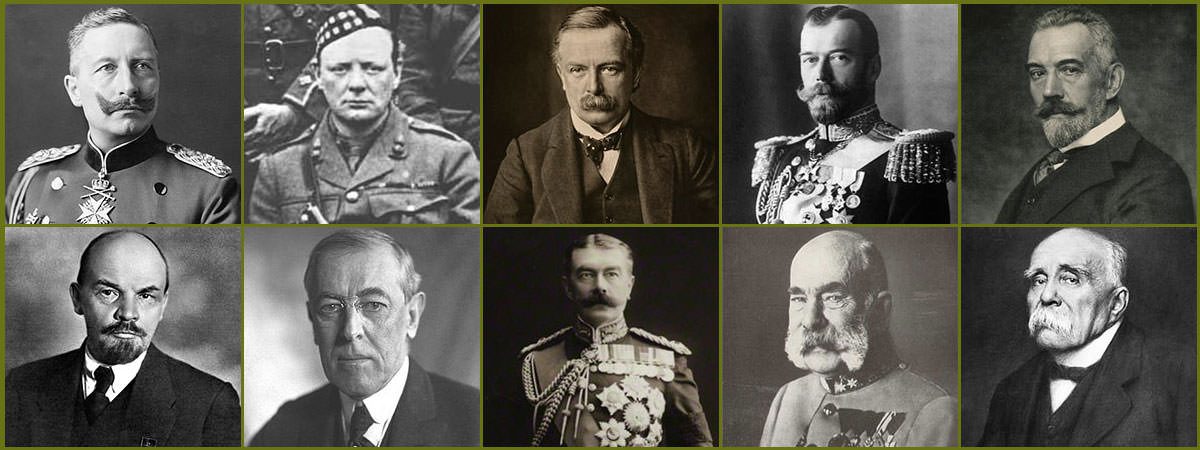
I think for Lenin’s one at the end it should say seized power in Russia not ceased.
Thanks for pointing out the error. It has been corrected.
US IS THE BEST COUNTRY IN THE WORLD
Your point ?
Ask Japan
Vietnam
Cambodia
Chile
and see what they say
I’m pretty sure that Woodrow Wilson isn’t from Russia 🙂
Thanks for pointing out the error. It has been corrected.